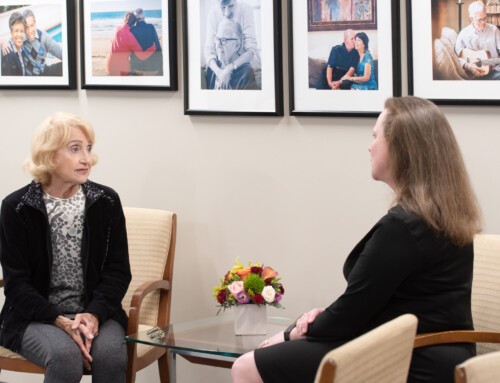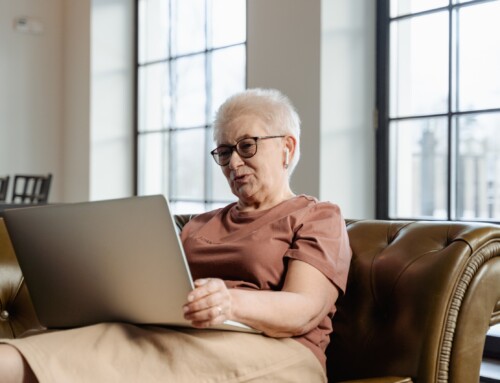 By Kara Jacobsen
By Kara Jacobsen
Taking care of yourself is one of the most important things you can do to help the person you are caring for. As the saying goes, “You cannot pour from an empty cup.”
Depending on your cultural background and upbringing, the idea of self-care may carry a negative connotation for you. You might have heard prioritizing your needs first is somehow selfish. But science proves otherwise for caregivers, who all too often, disproportionately find themselves in poor health, overwhelmed, and physically and emotionally exhausted, due to lack of self-care.
We know that the caregiving experience is different for everyone, and that circumstances can often make self-care seem inaccessible or impossible. But we hope our advice and tips below at least give you a starting point for small changes you can make to your routine to improve your well-being. After all, there’s no better time than the present to start taking care of yourself.
Why It’s Okay to Ask for Help
Maybe you are the type of person who has always found pride in your independence. Maybe you have this innate belief that you can persevere no matter the circumstances. Maybe you do not know how others can help and don’t want to feel like you are imposing. Maybe you believe this is something you should be able to handle alone because you don’t want to add more complications to the mix. But we’re here to let you know, your health depends on help.
According to the National Center for Biotechnology Information, caregivers develop depression at four times the rate of non-caregivers and are almost three times more likely to seek treatment for anxiety. The Family Caregiver Alliance also reported chronic conditions including heart attack/heart disease, cancer, diabetes, and arthritis exist at nearly twice the rate of non-caregivers.
If you aren’t ready to ask for help from outside options, we suggest starting with small, specific tasks for others close to you to assist with. This can be things like asking if they would cook a meal, pick up a prescription, come over to visit the person with dementia, or take the person out for a short period of time. Others will communicate to what extent they can help. It may not be easy, but the right people who are willing and able will support you. When it becomes a necessity, we encourage you to consider in-home care, respite options, or adult day care services. It may be difficult to think of having someone else provide help, but consider whether your circumstances and ability to offer care are what’s best for you and your person long-term.
Our connections to the community can point you in the right direction. Contact Alzheimer’s San Diego at 858.492.4400 to find out about resources in your area.
Your Emotional Health
Caring for a person with dementia is a 24/7 role that takes a lot of time and energy. And many caregivers experience feelings of discouragement, guilt, sadness, loneliness, frustration, confusion, or anger. It is totally normal. This responsibility can feel like a burden in more ways than one. Give yourself space to reaffirm that you are doing the best you can even when it doesn’t seem like it. Try reframing the words you say to yourself. Here are some phrases you can practice repeating to yourself:
- I’m doing the best I can.
- It’s the disease talking.
- What I’m doing would be hard for anyone.
- I’m not perfect, and that’s okay.
- I can’t control some things that happen. I can only control my reaction.
- Sometimes, I just need to do what works for right now.
- Even when I do everything I can think of, the person with dementia will still have difficult symptoms because of the illness, not because of what I do.
- I will enjoy the moments when we can be together in peace.
Meeting Your Spiritual Needs
As a caregiver of a person with dementia, you may need more spiritual resources than others do. Meeting your spiritual needs we’ve seen has helped people better cope as caregivers and find a sense of balance and calm. This will not be suitable for all. But for those who are involved in a faith community, make sure you’re taking time to connect. For others, simply focusing on meditative practices or having a sense that larger forces are at work in the world can bring a lot of peace and helps meet these spiritual needs.
Self-Care Tips
-
- Join an Alzheimer’s San Diego Support Group. We offer both online and in-person groups to give you the space to connect with others on the same caregiving journey. There are dozens of groups held 6 days a week, with morning, afternoon and evening options. Many members find it gives them valuable information, support, solutions, and new knowledge that helps everyone better endure the challenges of Alzheimer’s and other dementias.
- Spend time with friends. Connecting with others allows you to reduce stress and maintain a healthy lifestyle. The 24/7 role of caregiving can feel isolating. Reach out to your others, you need a social outlet.
- Take a five-minute break each day. Sometimes taking a long break is just not realistic. But even just five minutes to meditate, journal, or eat a nice meal outdoors can bring rejuvenation. Your mind needs a break. Do whatever brings you pleasure and relief to help you live in the present.
- Schedule time for your hobbies and interests. You will find it more difficult to extend your energy to others if you don’t first focus on extending it to yourself. Doing the things you love increases your energy, positivity, and patience.
- Get exercise as often as you can. Even a quick walk around the block can give you a daily dose of vitamin D and get your heart pumping. If you aren’t able to get out of the house each day, look for ways to stay active in the home through cleaning, gardening, or vacuuming.
- See your doctor on a regular basis. Regular check-ups are a good way to monitor your overall health and alert you if early health intervention is needed.
- Keep your health, legal, and financial information up-to-date. In the event that anything happens to you, having a plan in place reduces stress and ensures the safety of the person you are caring for.
- Eat healthy foods. It’s tempting to want to eat only comfort foods, but too much over time adds to fatigue and causes poor health and other medical problems. Making healthier choices every day will help with cognitive functioning and heart health. You only have one body. Make sure to value it and take care of it by fueling it with energizing foods.
Lastly and most importantly, be kind to yourself. We know this journey is not easy, but give yourself the time to recognize how overwhelming this all can be. Have compassion for your efforts and find gratitude in everything you are doing. If you’re struggling on your own, please don’t hesitate to reach out to our team of dementia Clinical Care Coaches. We are here as a resource, a sounding board, and as a support. This is not something you have to go through alone. Here’s a helpful video below from Teepa Snow on practicing self-care through breathing.
For more information and free support, call Alzheimer’s San Diego at 858.492.4400.




